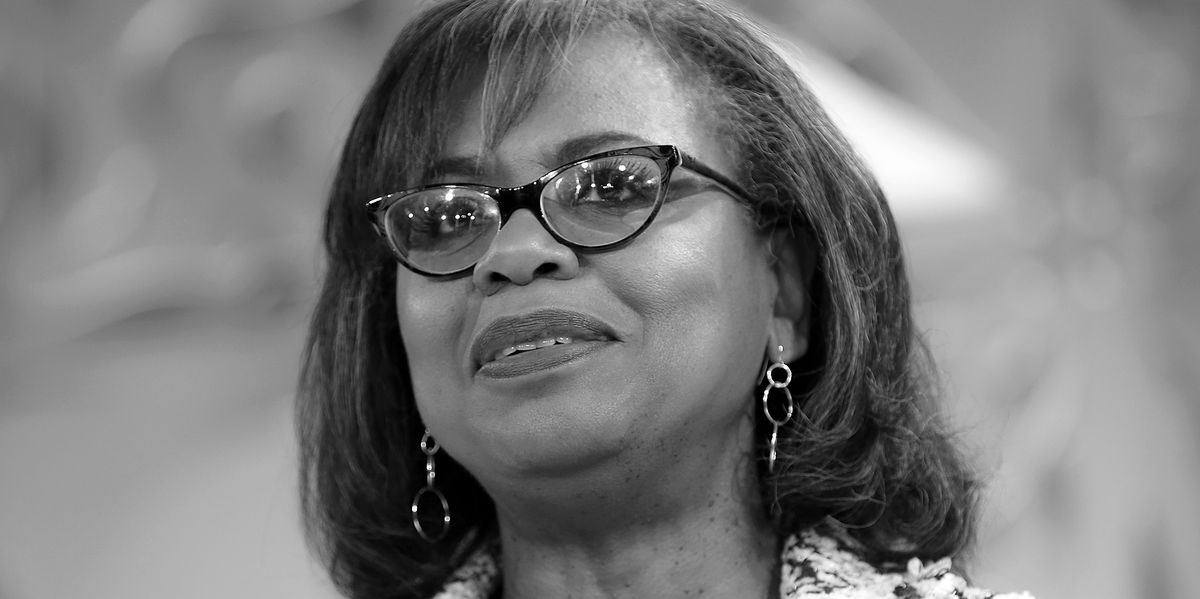
Phillip FaraoneGetty Images
When the Supreme Court overturned Roe v. Wade, eliminating the constitutional right to abortion in the United States, in June, Anita Hill wasn’t shocked. Instead, it was more of a dreaded confirmation. One clue was the leaked draft opinion that surfaced in May, stating that the Court would vote to strike down the landmark decision that made the case precedent for the past half-century. “The first sign that pointed to how extreme the Court’s position would be was the fact that Justice Samuel Alito was to write the opinion,” Hill says, referring to the leak. “We knew his positioning—along with those of Justice Clarence Thomas—which have been among the most extremely conservative. Some would even call it radically conservative, especially when it comes to rights.” She continues, “I knew this was part of a strategy that isn’t limited to abortion.”
Case in point: In Thomas’s concurring opinion, he called for reconsidering cases that affirmed same-sex marriage and access to contraceptives. Amid the social media outrage, Hill started trending on Twitter and other outlets. “Thinking about Anita Hill today. Thinking about what she went through. Believe women. Please,” tweeted comedian Kathy Griffin. Anita Hill “warned us against Clarence Thomas,” wrote media personality Jessie Woo. Hill says she doesn’t follow Twitter closely and has no comment on the recent posts about Thomas. “My testimony wasn’t about Roe,” she tells me from Boston, where she works as a lawyer as well as a professor of social policy and law at Brandeis University. “But I think that what people understand now is that Thomas was part of a strategy to reduce rights and protections of all kinds. Had the testimony been taken seriously, they would have understood that his behavior as the head of the Equal Employment Opportunity Commission suggested that he has an entire disrespect of anti-discrimination law.”
This content is imported from Twitter. You may be able to find the same content in another format, or you may be able to find more information, at their web site.
Hill’s 1991 testimony against the then-Supreme Court nominee alleged that he had sexually harassed her 10 years earlier when he was her supervisor as chairman of the EEOC. Hill testified before the Senate Judiciary Committee in a televised nomination hearing before 14 white, male senators—including now-President Joe Biden—who was the Senate Judiciary chair at the time. Republicans on the Committee questioned Hill’s credibility, suggesting that she was delusional, couldn’t handle romantic rejection, and was looking for revenge. Despite extensive debate, the U.S. Senate confirmed Thomas to the Supreme Court by a vote of 52 to 48. Almost thirty years later, just before entering the 2020 presidential race, Biden called Hill to apologize for how she was treated when she testified before the Committee—an apology that left her deeply “unsatisfied,” she said at the time.
But the Committee’s dismissal of Hill’s testimony was just one step toward a Court that’s hostile to abortion rights. “I don’t think many people understood fully or kept up with the fact that there have been efforts all along the way to incrementally push back on Roe,” she says. “So this [trajectory in the Court] has been chipping away at those rights and setting the scene for legal reasoning that would ultimately allow them to move to that extreme step so that it’s away from any federal protection or responsibility.”
With Roe overturned, it will be nearly impossible for millions of people across the country to access abortion and other essential health care. It will also have a direct and profound effect on gender harassment and violence. “Reproductive coercion in intimate partner relationships is something that exists, and people in those situations will have fewer options now,” Hill says. “It’s going to strengthen the ability for this kind of coercive behavior, because the states have now given people tools to exert pressure on individuals to have a child.” Once recent example is a 10-year-old rape survivor from Ohio who was forced to leave the state for a legal abortion.
The other issue that concerns Hill is that some state lawmakers are hoping to ban travel to other states to get abortions: “The combination of travel bans and other legal reproductive restrictions, along with vigilantism [and] deputizing the public to enforce the law through monetary incentives, opens the door for coercion, threats, and worse.” Hill says that, in many respects, it’s what the movement against Roe has been built on. “[There’s] violence against health care options, health care providers, facilities that give abortions, and against people speaking out.”
On Friday, Biden signed an executive order to expand access to reproductive health care in the U.S., though it will not reinstate the protections of Roe, something Biden has urged Congress to do by passing federal law. “I applaud President Biden for using the power of the executive branch to provide reproductive resources and safety that are needed now,” Hill says. She believes that now the long game should be a different interpretation of the Constitution from the Court: “One which would, among other things, support reproductive freedom and LGBTQ and privacy rights, as well as provide protections against, racial, ethnic, and gender discrimination.”
But there must be movement at every level of government, she emphasizes. “That means federal and states but local as well,” she says. “While abortion rights are a significant concern, we must not lose sight of other rights—these will also be put at risk because of the trend in the Court.”
This content is created and maintained by a third party, and imported onto this page to help users provide their email addresses. You may be able to find more information about this and similar content at piano.io

